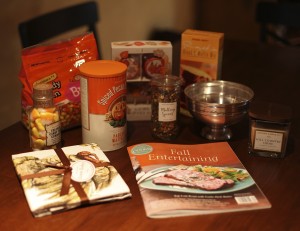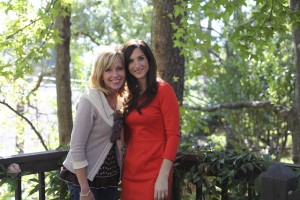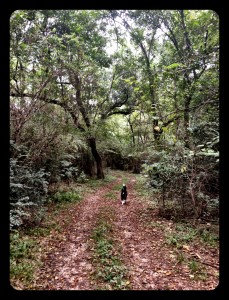After a fourteen-month break and a gracious God willing, I’m about to duck my head back under a stack of books and commentaries and drain a heap of ink cartridges dry as I peck, type, and tap my fingernails on my desk toward another Bible study. When I was 30 years old, the thought of the first one never occurred to me. After that one was finished and originally placed on a shelf, I didn’t imagine a second one.
It’s not that writing had never crossed my mind. I’ve been obsessed with the feel of a pencil sliding across a page since my earliest memories. My young childhood years were spent on a hill in Arkadelphia, Arkansas in a small house splitting at the seams with eight people and tickled in the ribs by pine needles. I must have swung a thousand miles on the stuffed burlap bag my dad hung by a rope from an oak’s flexing bicep. I’d twist the rope as tightly as I could then hop on the bag and twirl around in dizzying circles with my head reared back, rope unwinding, and hair flying. And life has gone by pretty much like that ever since.
Because my maternal grandmother lived with us, my mom wasn’t obliged to stuff all of us kids in the station wagon every time she went to the grocery store. On occasion, however, I’d beg to go with her and she’d let me. There was a little gray plastic horse with a red saddle and loose brown rein that I’d befriended at the auspicious entrance to the Piggly Wiggly. Most of the time, I’d stay perched right there on his rigid back until the checker dug herself out from under an avalanche of groceries, can by can. A child was safer to let go of her mother’s skirt in those days. While she was inside fetching buttermilk, pork ‘n beans, and light bread, I was outside hugging that plastic horse so fiercely that sometimes flecks of chipped paint would stick to my arms and legs until my next scrubbing. That would occur the next Saturday night.
We, of course, were forced to bathe or shower every day and we often did so two by two, rather like a reverse Noah’s Ark. The youngest of five girls in the house, I might get thrown in with anyone from six years old to seventy-five. A disembodied voice would yell, Can I throw Bethy in there? Then the next thing I knew, a hand would appear ex nihilo and snatch me through the heavy veil. But there was a fearsome thing in our household called “the Saturday bath.” You didn’t come out of that one unscathed.
What skin you had left when it was over was usually exfoliated by the brisk drying off. It was something akin to the flaps in a car wash. The other six days a week I don’t even recall dry-before-dressed being a top priority but, come Saturday night, cleaning was a near killing. The water, however, was only phase one of the ritual. We girls then sat in a row at my mother’s feet while she pin-curled our hair so tight our eyes would turn to slits. All this was so that we’d look fancy for church the next morning. She also pin curled Nanny’s hair and had done so for years. That Nanny only had about 73 hairs left on her whole head was no wonder to me. I often pictured waking up on Sunday morning, crawling out of bed, and the pin curls remaining right there on the pillowcase completely intact, broken off at the roots.
Years passed before I realized that the horse outside the Piggly Wiggly would have rocked back and forth for the better part of a minute if somebody rolled a nickel into it. My mom could still laugh herself into a coughing fit about that very thing till the year she died. That old stiff beast wasn’t my only motivation anyway. I also hitched a ride for the Big Chief Tablet. If my four siblings and I hadn’t frazzled Mom down to her last nerve and pitched her into an absolutely not, I could usually harass one out of her with incessant incantations of pretty-pretty-please. There could also be measurable success if we kids had managed to break her will. You had to play it just right since she was like most moms. Sometimes you didn’t know if it was resignation or rage until you were decidedly sorry you’d asked. However I attained it, as soon as I had that tablet in hand and back home on the hill, I’d snatch a pencil from the kitchen drawer, sharpen it, and scribble for hours until every single line was filled on every last page.
Five and six years old, I wrote fastidiously in my own brand of cursive. Mind you, I hardly knew how to spell a word with basic print, let alone write in cursive but how could any literature be taken seriously in disjointed characters? So, I made up my own script, big on curlicues, loop de loops, ocean waves and dolphin fins. This was not the stuff of Christian books penned with a fury there in the dark red shadow of the Big Chief. My books were more inclined toward elementary romance novels. They involved characters like Little Joe Cartwright on Bonanza and probably me, and Barbie’s dark-plastic-brown-headed Ken and probably me, and a host of doll babies or trolls and probably me. I would stare off into space a little while, mutter and ponder, then throw my head down dramatically and scribble for all I was worth.
Writing came easier back then.
As I grew up, my interests widened. I loved English and social studies and student government. I eventually got my undergraduate degree in political science with thoughts of going on to law school and threw in a teacher’s certificate to boot but, with any musing time at all, I still scribbled and doodled on every bare inch of paper. My official writing days were now long behind me, leaving soirees with Big Chiefs in a smattering of dust. I’m not sure when it first hit me that I might write a Christian book but, even then, those pages were scribbled out of a romance – the most enduring one I’ve ever had – and not without copious curlicues and loop de loops.
I’ve never mastered writing. I read the works of others and say with much admiration, now that’s a real writer. But this many excursions in, I am no longer naïve about what these many months ahead are going to take. So, I’m steadying myself, taking a deep breath, and whispering underneath it, “Well, here we go again” and all with that inseparable mixture of stomach-churning dread and it’s-great-to-be-back hope. This is what I love. And this is what I sometimes hate. Well, that’s not true. Hate is too strong a word but on occasion it does occur to me that there are work-lives that could be substantially less stressful and less dependent on an endless list of variables like mood, atmosphere, weather, relative-quietness-versus-too-much-quietness where you can hear the clock ticking louder and louder until it sounds like an ear-splitting gong in a torture chamber. Under most circumstances, you need just the right inspiration for just the right amount of time, not to mention exactly enough pain to stir up some passion but not so much that you consider killing yourself. Or at least seriously. And that’s another thing. You have to read and reread any whimsical sentence you write for fear that someone will take what you said too seriously and pass a kidney stone over it.
Writing can be a hard, grueling profession. It has moments of beauty, mystery, and emotion so strong that you can’t see the screen but, nipping at their very heels are harassing fears that you might not have another. That you’ve started a book you can’t finish. And worse yet, you told someone you’re writing a book and now it appears that the devil could die of frostbite before you can construct another intelligible sentence.
I feel this strange sensation of dread and hope every time I start to write something of any length but only in the last few journeys have I thought intently about you. About you new writers, you lovers of words, stirred of heart and mind to lasso your swirling thoughts onto a page, let them be still, and wonder if anyone on earth will care to actually read them. And, if they do, will they ridicule them? I think of you now because of the groundswell of obstacles that have emerged out of a giant social earthquake. A dazzling mountain range has jumped in the path between the first word of every decent book and its last. Its lung-searing climb, its slippery summit, and harrowing descent are woefully beyond the muscle of the weak-willed.
Many of you are young enough to know no other writing world but this one. Others of us have been around long enough to recognize the glaring climate changes. A dyed-in-the-wool sanguine, I feed off a social frenzy with all the patience of a crackhead just like other people-persons do. I love it. I crave it. I’m just saying it’s next to impossible to actually eek out a decent book in the batting eye of it. Long-term writing has always been difficult but these present winds, they are a-blowin’, and those of us who insist on keeping every window wide open will have our pens whipped into knots and our floors swept by swooshes of blank pages.
Because one thing will never change.
A decent piece of writing demands concentration.
It’s hard – not impossible but hard – to bring it to completion with a semblance of originality and, Lord, help us, anointing amid the constant cacophony. Amid unhindered choruses of…
Oh, for a thousand texts to ping.
Or
There’s a tweet, tweet spirit in this place.
Others are more qualified to speak to this than I. Obviously, I’m just putting off the first sentence of a project with one last rabbit-chase. I have no great word on lasting penmanship in a frenetic climate. My take on the subject comes from my own subjective experience and perspective. For that handful of you who have hung on this long, however, I’m going to throw a few things on the counter that I have learned along the way (true to frustrating form, the hard way). This is why: because I believe in you young writers and in you not-so-young-but-new writers. I see great men and women of God out there with things to say that need to be documented into a format with a shelf life longer than an iPhone upgrade. So, here goes.
Writing a book will be harder than you think and take longer than you want.
You very often will lose passion for the project somewhere in the middle of it and even sprint mentally in a mad blaze toward a new direction and new title. Expect it. It’s completely normal and, on occasion, projects really do need to be abandoned. Maybe God’s just not in it. Maybe it was better off as a blog post or a thought-worthy entry on Tumblr. Maybe we didn’t think it through and mistook it for a long-term project. It just wasn’t the right direction. We miss it sometimes. But, more often, the maddening ebb is part of the writing process that you must work and pray and cry and press through until the fire returns because, if you don’t? Well, if you don’t, you will start fifteen books and finish none of them. And, if you do, your blaze for the project will often boomerang with a satisfaction that plunges all the deeper because you fought the demon and won. In the immutable words of Hebrews 10:36, you need to persevere.
You have to factor in more than writing time. Decent writing requires much more time than it takes to actually type the sentences. Decent writing requires thinking and spinning and mulling and living and watching and listening and experiencing and reaching. These bring the strokes to the page that turn the transfer of information into true connection.
Limitless opportunities have come with the global blast of information and communication. What believer couldn’t entertain the notion that God may have foreordained all this access for the purpose of Gospel wall-leaping? It’s a gorgeous thing. But omnipresence is a burden only God can bear. Insisting on being ten places at once for twenty hours a day for weeks on end will ultimately make aloneness almost intolerable. Thankfully, that doesn’t mean we’ll never hear from God since He can well reveal Himself in corporate contexts. It just means that we will less likely sense what He’s trying to communicate to us personally and use us to communicate to someone else. The Biblical art of meditating can turn a parched cistern into a fountainhead.
I meditate on all You have done; I ponder the work of Your hands. I stretch out my hands to You; my soul thirsts for You like a parched land. Psalm 143:5-6
Turn to the psalmists and trace with your fingertips the times they talk about meditating on God and His precepts, His ways, His acts, and the human condition with and without Him. Study the contexts. See the results. The loss of such an art may be gradual but make no mistake. It will also be incalculable.
The NIV translates Jesus’ words in John 12:49 in terms that stand up on the page like a pop-up book for any believer hoping to communicate.
For I did not speak of my own accord, but the Father who sent me commanded me what to say and how to say it.
Only Jesus is capable of speaking solely what the Father has commanded but a concept dripping from it like honey is enough to wet the tongue of the driest human mouth: Communicating is not only about what to say. It’s about how to say it.
That takes pondering. And pondering takes time. The word “Godspeed” may be the most overlooked oxymoron in the English language. He rarely does. Speed, I mean.
Panic only exacerbates inevitable waves of writer’s block. I don’t care how elementary and predictable this piece of advice is going to sound. When it happens – and it will – get up from your desk, down on the floor, tell God your struggle and pray for Him to move you past the block. Then, as you get up from the floor, thank Him for His kindness and mercy and complete dependability. The block may pass right away. It may not pass until the next day. Or week. Or month. But, if the project is from God, the boulder will most definitely tumble from the path and, when it does, you’ll know who kicked it. Appropriately, God wants us to credit Him with every victory. Hasten to it.
Do the work. Study. Prepare. Don’t have all of your research done by someone else. The discovery itself is often the gift.
God will most often take the message we’re writing and prove us genuine by hammering the themes relentlessly on the anvil of our souls. Does it say anything that I had to type the word “anvil” very slowly to keep from writing “advil”? Knowing how much time to allow on the manuscript due-date for a holy hammering is hard to navigate but, whenever it’s finished, it will be ten times the untested version. Oh, I know, I know. We all hope we’ve already lived the process in advance which is why we feel qualified to speak to it in book form but, from my experience, that’s a sweet dream. If we sow to our flesh we’ll reap the flesh. Only if we go to the extra trouble to sow to the Spirit will we reap something of authentic, eternal spiritual value.
Submit to the angst of decent editing. That means we have to let our works and ourselves be critiqued. Criticized. Questioned. Challenged. A good editor can be a solid gold pain in the neck that we oughtn’t to want to trade for all the e-book space in the universe. Think of all we’ve gotten in trouble for saying, then think of all we could have said. Lord, help me. An editorial cut can sometimes swerve you right out of the path of a flatbed trailer full of fertilizer. If we don’t trust our editor enough to give us some pretty solid advice, we really do need to seek a new one. Some statements are well worth fighting for and it can come down to finding a different way to say them. Other times authors might get their way with an editorial disclaimer we shouldn’t take lightly: “Ok, but don’t say I didn’t warn you.” A number of statements along the way have been worth some controversy to me but some of the things that have hurled me into the hottest water weren’t even important to me. Many words, much folly.
Perfectionism will snuff the flame. Period. Give it up. It’s cheating us out of hearing your genuine voice.
These are a few reasons why we may never read books by some of the greatest writers on the planet. Some are too narcissistic to take the criticism, too undisciplined to see it through the dry spells, or too committed to greatness to settle for publishing something good.
For we are His workmanship, created in Christ Jesus for good works. We don’t have to strive for fabulous. Purely doing some good can be really great.
Just one more.
Don’t just think twice before you sign a multi-book contract. Think fifty times. Resist it at all costs (see below) unless God writes a go across the sky. As tempting as the sight may be, God may not spell go like this:
$$$$$$$$$$$$$$$$$$$$$$$$$$$$$$$$$$$$$$$$$$$$$$$$$$$$$$$$$$$$$$$
God can lead His children any way He pleases. You could flourish under conditions that I find crushing. But, for me, there’s nothing like the pressure to write that leaves me with fewer things to say. God is all-powerful, compassionate, mysterious, and sometimes almost humorous. He freely admits to the enjoyment of showing the wise foolish and the foolish wise. He can do anything He wants any way He wants but, as a general rule, holy passion is a better guide than human pressure. It is dangerous to sign contracts for unwritten books. And taking money for them can burn a hole right through the lining of your stomach.
So. I guess I’ve put off the process long enough and will go get to it. Maybe all this rambling was just a reminder to me. Thanks for giving me the space to hash it out.
Ecclesiastes 12:12 says, Of making many books there is no end.
And I – more reader than writer – for one am glad.
Write on, sister or brother. Don’t wait for a publisher or a book deal. A true writer has to write even with no one to read. Scribble down rogue phrases and incomplete sentences as they come whether or not they seem strung together. Write on the backs of sales receipts or the palm of your other hand. Just write! That book is in there somewhere.
If it seems slow, wait for it. (Habakkuk 2:3)
And when it comes, may God speak.
Leave a comment here. | Share with Others:




















